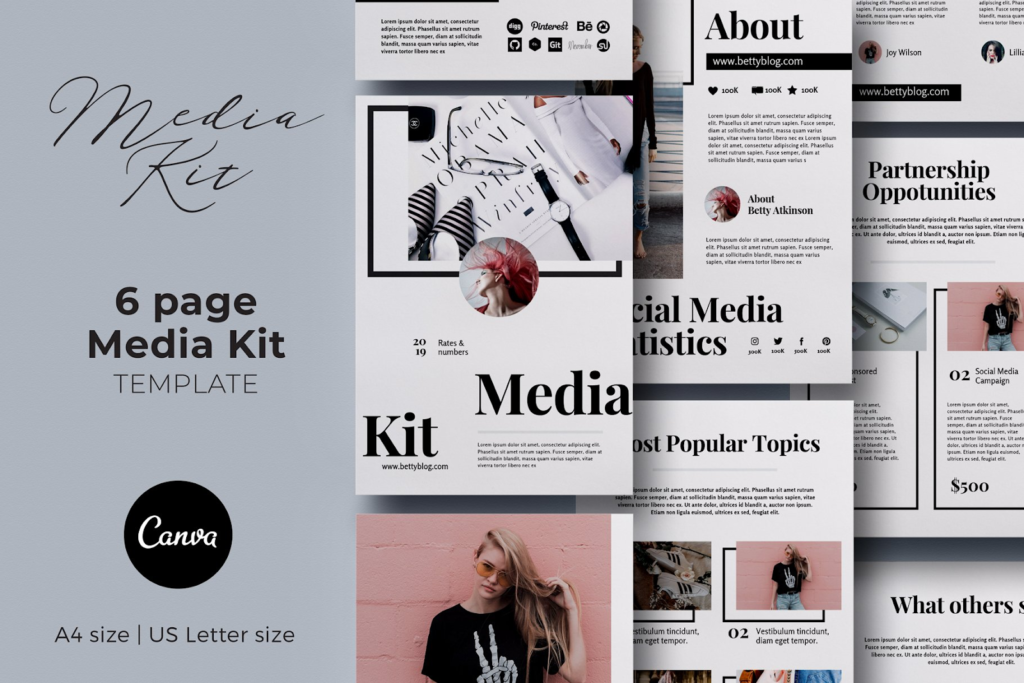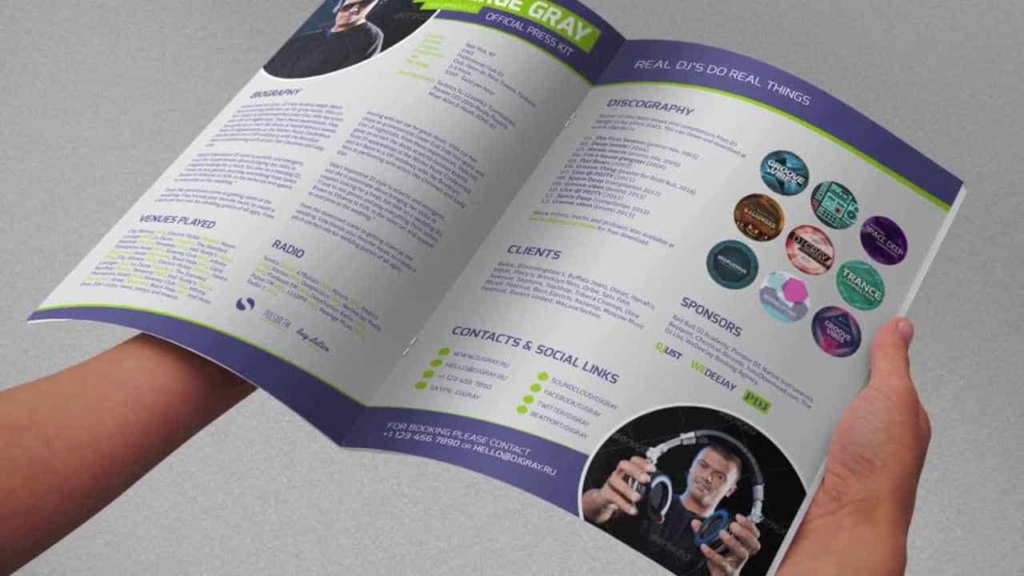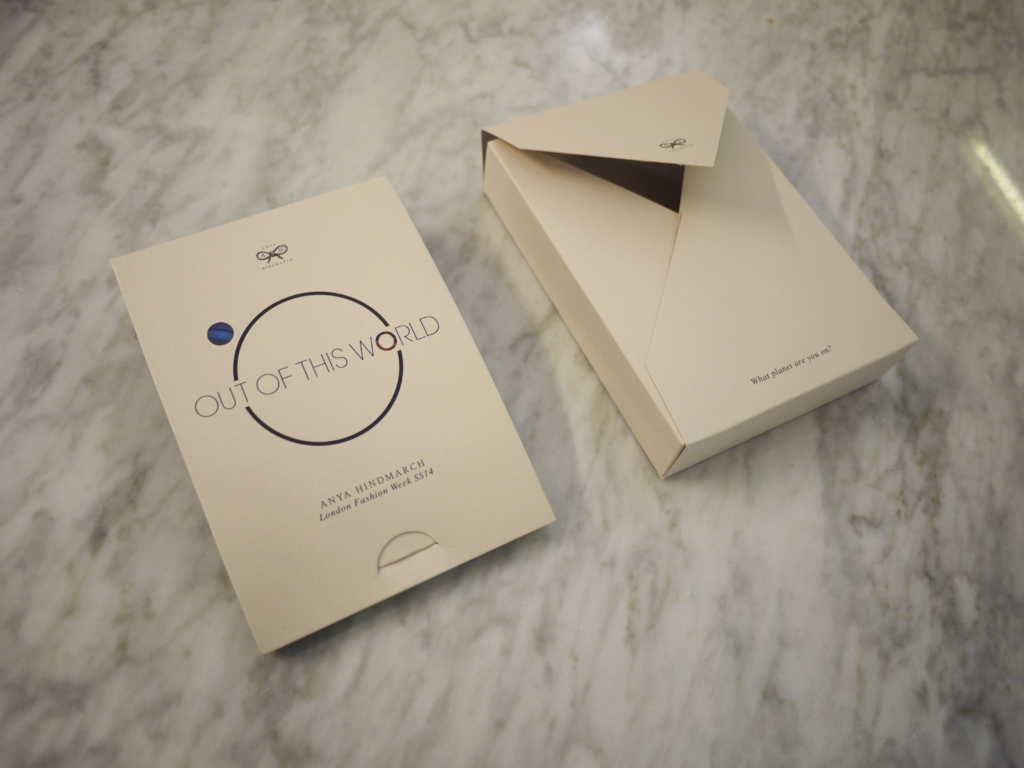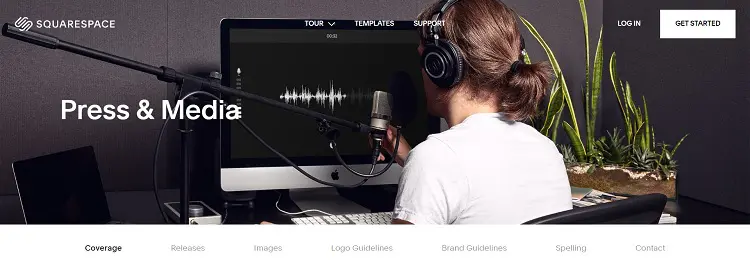6 Awesome Hacks to Creating the Perfect Press Kit

Table of Contents
- What Is a Press Kit?
- Tips to Create the Perfect Press Kit
- What are the Essential Elements of a Press Kit?
- Key Takeaways
- FAQs
As a brand or business owner, one has to constantly evolve to stay relevant in today’s fast-paced marketing world. And one way of doing this is to crack the essential channel of media and press kits. Creating a press kit can help you stay up-to-date while controlling the brand’s narrative cost-effectively.
A press kit can be useful in various ways. It is an easy way to keep the masses updated on your services. A good press kit design can also save a lot of time and money that you would have otherwise spent on advertising. And press kits are a great way to promote an event or a particular product or cause, depending on your type of company.
Find out how to create a press kit to help your business scale.
What Is a Press Kit?

In the simplest term, a press kit is a set of promotional materials related to a brand that is put together to provide information about a product, individual, event, or cause. A press kit design can be digital or in print. Digital press kits, however, are much more popular nowadays.
Typically, a press kit is meant for the press or media members and used for promotional purposes. The media personnel uses relevant information from the press kit to disseminate information about the service or brand. A standard press kit may include,
- Informational documents
- Photographs
- Marketing collateral, like a flyer or brochure
- Audio-visual resources
A press kit is a crucial element of a company’s PR (Public Relations) initiatives. And it has the following uses:
- New product or service launch
- New branding
- Special events or stories
- Special announcements like notable individuals joining the team
- Promoting a cause
Tips to Create the Perfect Press Kit

Digital or printed, a press kit design should follow some standard steps of creation:
Have your own website
If you don’t have a digital presence in today’s digital world, you are losing out on a great deal. So, start from there. You can create your webpage and fill in relevant content on relevant pages. Have a compelling landing page with information about your brand, products, and services.
Add a separate section for press and media
You can name this page whichever way you like, as long as it has a proper press kit available online. This page should have all relevant resources about you and your brand. The objective of this page should be to make everything accessible to the masses.
Include relevant content in the press kit
This is where you choose and decide the most relevant information you want to share with the media. The inclusions might be your brochure, awards and recognitions, partners, sponsors, clients, event updates, etc.
Keep the press kit updated
Your press kit should not be outdated. It should have information covering the most recent developments for your brand. Avoid using old flyers and brochures just to fill up the kit.
Keep your press kit organized
A good way of creating a press kit is to organize it into different sections. You can use colored strips to segregate the sections or use different headers. Try not to use too many colors to avoid visual saturation and use legible fonts.
Include a CTA
This is optional, but a CTA is a good-to-have component of press kit design.
What are the Essential Elements of A Press Kit?

What goes into designing a good press kit is reflected in the results it can achieve for the brand. Here are the essential elements of a press kit:
1. About the brand
Use this section to share a brief overview of who you are and what you stand for. What are the products and services you offer, what kind of values you teach, the causes you care for, the employee demography – everything you feel will help make a great impression.
2. Relevant data
Use the press kit to provide relevant numbers and statistics about the brand’s performance, projections, sales, etc. Make good use of graphs, charts, and infographics for this section.
3. Compelling quotes
Write compelling phrases to capture the essence of your work. The media representatives can easily share these to talk about your brand later.
4. People stories
Take the opportunity to introduce and acknowledge the people behind your work. This can positively impact others, who will then look at your company as a people-first organization.
5. Social media links
This is a non-negotiable for a good press kit design. Aim to guide the reader to your social media handles where all the action is – Facebook, Twitter, Instagram, and LinkedIn.
6. Products and services
Add a section about the products and services that you offer. This becomes hugely important if you launch a new product and want to make a case for it. Include product samples, if you can.
7. Photos and videos
Put in a few high-quality images and videos, if available, that can be used by the media while writing about you.

8. Brochures and press releases
Make sure you write a good press release detailing out the “What,” “Where,” “Why,” “Who,” and “How.” This should be restricted to 300 to 400 words. Remember, you are giving the press the liberty to use this to talk about you. So, the writing has to be precise and well-articulated. Alternatively, you can turn to professional web content writing services to do this for you.
9. Recognitions and achievements
Make the press cognizant of any achievements, awards, or recognitions that make your work relevant. Help them talk about it to the world.
10. Contact information
Always include your brand or company’s contact information in the press kit. Ideally, you would want the press to reach out to you later for further coverage.
Key Takeaways
- Creating a press kit helps you control the brand’s narrative in a cost-effective manner.
- A press kit is an easy way to keep the masses updated on your services.
- A press kit is a set of a brand’s promotional materials put together to provide information about a product, individual, event, or cause.
- A standard press kit may include informational documents, photographs, marketing collateral like a flyer or brochure, and audio-visual resources.
- You can create a press kit by designing your own website and adding a separate press section there.
- The key elements of a press kit are the “About Us” section, relevant data and quotes about the company, social media links, information on people, products and services, information on awards and recognition, a well-articulated press release, and contact information.
Making a Perfect Press Kit
In the end, a press kit can be as good as the brand. But having said that, a good PR personnel can make a huge difference between creating a basic and a compelling press kit, one that can turn a company’s fortunes!
FAQs
Creating a press kit helps you control the brand’s narrative cost-effectively and is an easy way to keep the masses updated on your services.
A media kit and a press kit mean the same thing, and the terms are used interchangeably.
A SaaS press kit runs on a specific technology at the backend to give you digitally compelling and efficient media kits.
A PR kit is essential to control the information about a company shared with the rest of the world and keep a tab on the narrative.
An electronic press kit (EPK) is a press kit created digitally, using templates, and is available online.
Latest Blogs
Explore how Google’s 2025 AI search updates triggered ranking chaos. Learn actionable strategies to adapt your SEO for AI Overviews, zero-click searches, and SERP volatility. Stay ahead now.
Learn how to rank on AI search engines like ChatGPT, Perplexity, and Gemini by optimizing your content for authority, structure, and relevance. Stay ahead in AI-driven search with this strategic guide.
Explore the best healthcare SEO services for your medical practice. Improve online visibility and effectively reach more patients in need of your services.
Get your hands on the latest news!
Similar Posts

Design
7 mins read
15 Best Firms Offering Design Services in India

Design
5 mins read
All You Need to Know About Data-Driven Design

Design
6 mins read